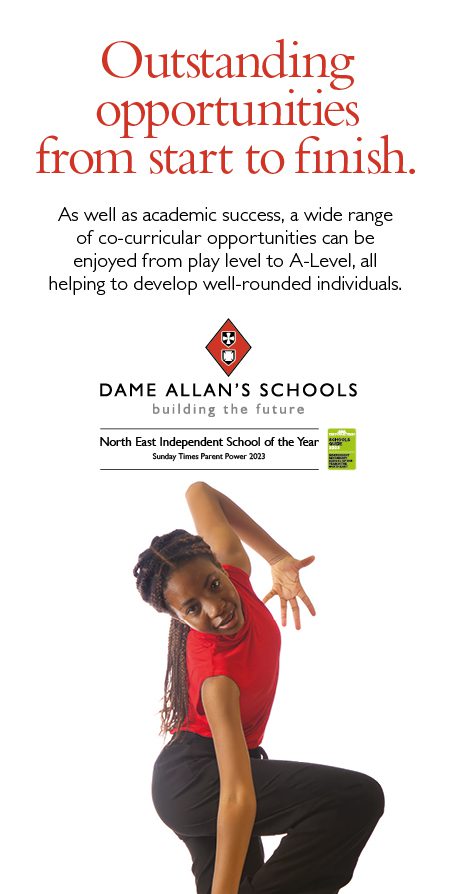By Geoffrey Stanford, Headmaster of Newcastle Royal Grammar School.
I recently had the opportunity to join BBC Presenter Evan Davis to discuss the business of independent schools for Radio 4’s programme, The Bottom Line. Many independent schools have charitable status but, in introducing the programme, Evan commented that the new government is proposing to treat independent schools more like businesses and less like charities by imposing VAT on the school fees paid by parents.
Whether charities or not, there is virtually no other country in the world where the provision of education is subject to such taxation – Greece tried something similar and quickly revoked the policy. It is worth noting that the Institute for Fiscal Studies (IFS) paper, on which the policy of imposing VAT was based, specifically commented that where there are cost savings to the government and positive spillover benefits there are good arguments for exempting independent schools from VAT.
Any child educated outside of the state sector represents a cost saving to government. Indeed, Independent Schools Council figures from 2021 show that this saves the state £4.4bn even before the £14.1bn contribution to GDP and £4.3bn in taxes revenues. Meanwhile, although not all independent schools are charities, those that are often have a long history of providing public benefit in towns and cities all over the country. Half of independent schools in the UK have fewer than three hundred students and many serve very particular markets. These include faith schools, special schools, performing arts schools and so on, catering for children whose needs are not met in state schools, and families deserve the choice of different schools in order to find the one which best suits their child. Large schools like the Royal Grammar School, Newcastle typically fulfil their charitable obligations through the provision of bursaries and through partnership work in their local community. In our case, as of September, we will have ninety bursary students in the school. In parallel, each year we also run more than fifty projects in over a hundred local schools in areas of most need supporting over 10,000 children, at no cost to government.
As well as being a manifesto commitment, the policy of introducing VAT on school fees was referenced in the King’s speech and so, notwithstanding the arguments above, it was no surprise when the policy was announced with an accompanying technical guidance paper. What was surprising was the timing of the announcement and the speed with which the policy is being implemented, without any meaningful consultation with those affected. By announcing the policy during the summer holidays, many schools were not in a position to respond quickly. Meanwhile, the implementation date of 1 January 2025 means that parents would have to give the standard term’s notice to leave before the beginning of September if they need to move their children. It may be, in the short term, that parents move heaven and earth to avoid disrupting their child’s education. At the same time, focussing on the needs of the children affected, schools will do their best to support where they can. However, some will have no choice, particularly where schools may be forced to close. Moving your child to a different school is not easy at the best of times and finding places at short notice in the state sector mid-year is also likely to be very challenging.
As the trustee of a Multi Academy Trust that specifically targets areas of disadvantage, I am all in favour of a properly funded state education sector. However, the policy is unlikely to raise the funds that the Labour party expect. The IFS study assumed that the money will be raised irrespective of how many children leave the independent sector, arguing that VAT will be paid on other goods and services that parents spend their money on instead of school fees. In reality these parents will pay for things that do not incur VAT such as tutoring, buying houses near to good state schools and paying off their mortgages.
I recently heard British Labour politician David Blunkett saying in interview that the Labour Party had made a mistake in 1997 by abolishing the Assisted Places scheme, which was paying for 34,000 children to attend schools like the RGS. He said this did not raise the money they expected and that the commitments they made instead cost far more than anticipated and ended up being targeted in affluent suburbs rather than areas of most disadvantage. I fear that history is repeating itself but, by the time this becomes clear, the damage will have been done.
www.rgs.newcastle.sch.uk

